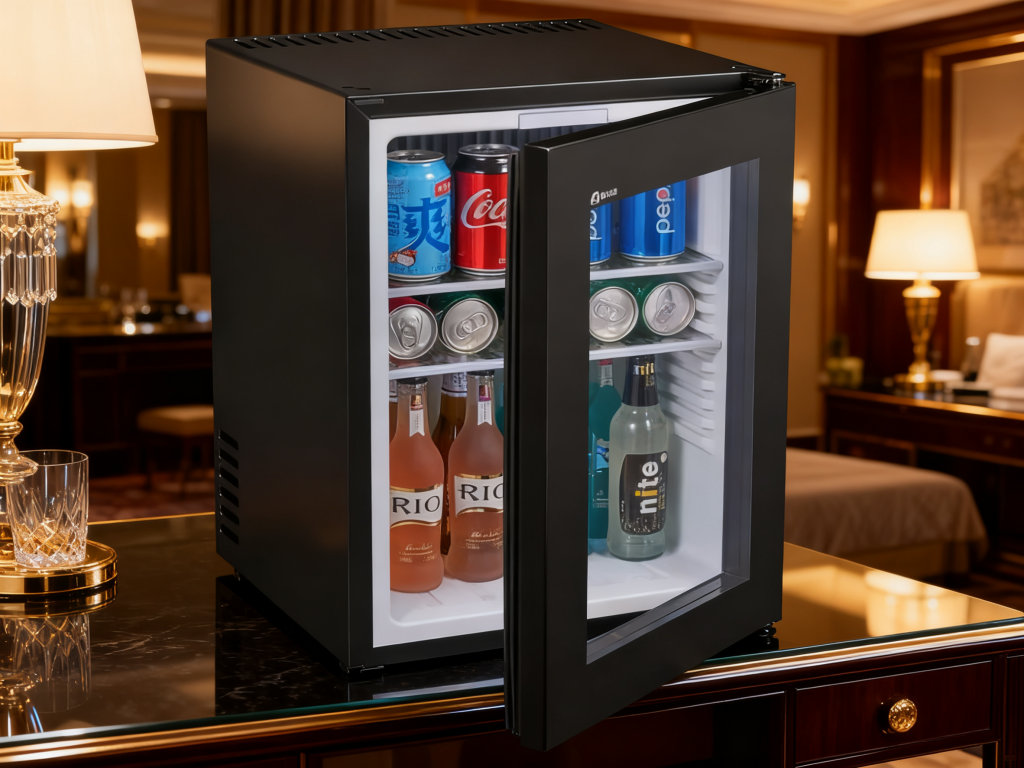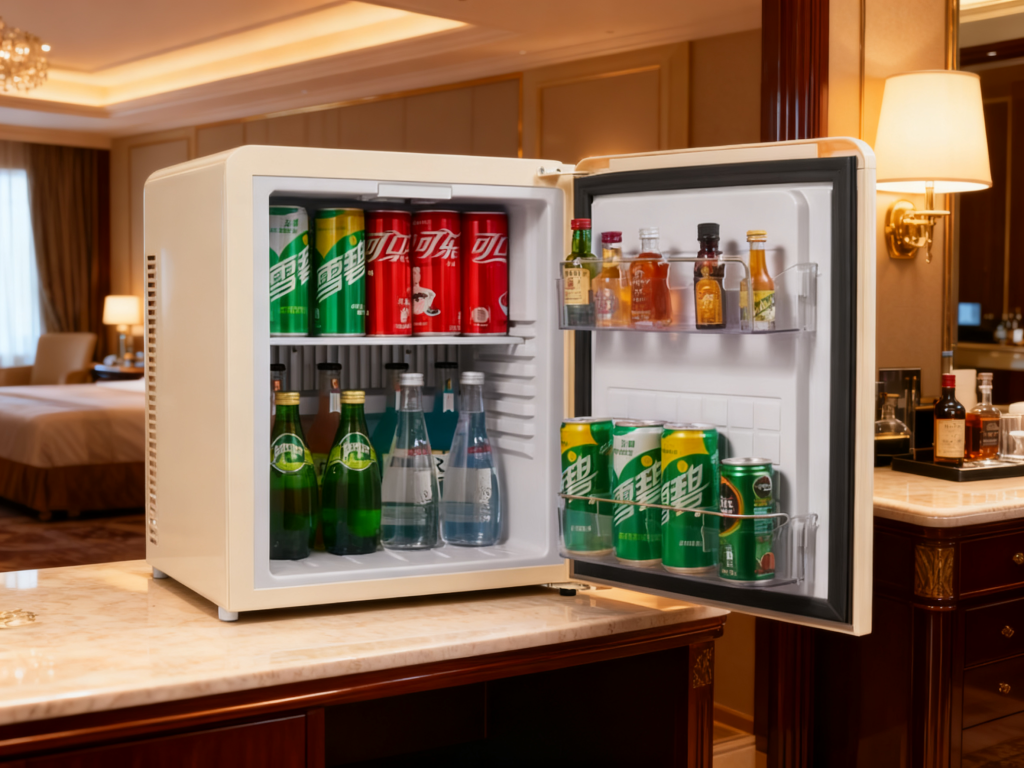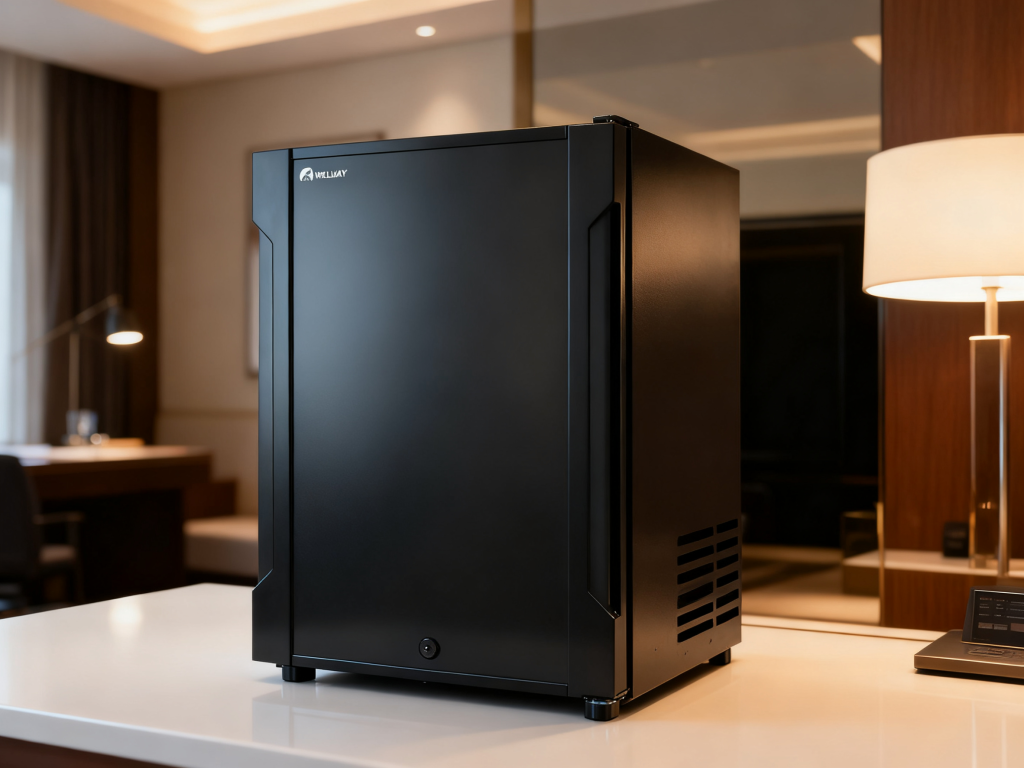In the fast-paced hospitality industry, guest satisfaction depends not only on major amenities but also on subtle details that enhance comfort. One of these essential details is the in-room refrigerator. Whether designed for an upscale resort or a practical business hotel, the right refrigerator solution reflects a property’s commitment to convenience, efficiency, and premium service. This article explores the key factors, design trends, and best practices for choosing hotel refrigerators that meet the unique needs of both luxury and business hotels.
While digital innovations and smart-room technologies continue to shape the guest experience, the mini-bar or in-room refrigerator remains a core feature that delivers tangible comfort. In luxury hotels, it represents refined hospitality—quiet, sleek, and perfectly integrated into the room’s design. In business hotels, it offers guests quick access to refreshments while minimizing operational noise and energy consumption.
Beyond comfort, an efficient mini refrigerator also supports hotel operations. It can enhance guest satisfaction, drive minibar sales, and reduce long-term maintenance and electricity costs. A well-selected model aligned with the property’s positioning adds value to both the guest experience and the hotel’s profitability.

For any hotel, reliable cooling and silent operation are non-negotiable. Guests expect fresh, chilled beverages without disruptive noise. High-quality hotel refrigerators use advanced compressors or absorption cooling systems that ensure consistent temperatures while maintaining whisper-quiet performance—an essential feature for restful stays.
With sustainability now a global priority, energy-efficient appliances have become a competitive advantage. Low power consumption reduces operating costs and aligns with eco-friendly hotel practices. Modern hotel refrigerators are designed to minimize energy waste through improved insulation, smart sensors, and LED interior lighting, helping hotels achieve greener operations without sacrificing performance.
A refrigerator in a luxury suite should complement the décor rather than distract from it. Modern designs offer a range of colors, finishes, and styles that naturally blend with interior themes—whether minimalist, contemporary, or boutique. Some suppliers even provide customization options, such as logo branding or customized color schemes, to align with a hotel’s design language.
Hotels cater to diverse guest room layouts—from compact business rooms to spacious suites—so refrigeration solutions must be adaptable. Options range from wall-mounted mini units for smaller rooms to larger glass-door beverage fridges for suites and executive lounges. Choosing the right capacity ensures functionality while optimizing space and energy use.
Durability is another essential factor, especially for high-traffic properties. Plastic-door models are practical and affordable, making them ideal for budget and mid-range hotels. Iron-door and glass-door refrigerators, on the other hand, offer superior resistance to wear and tear while adding a premium visual touch. Glass doors also allow guests to see the contents easily, reducing unnecessary door openings and conserving energy.
Luxury hotels demand equipment that enhances comfort and complements upscale interiors. Ideal features include:
Retro-style refrigerators with modern technology are particularly popular among boutique and theme hotels, offering a perfect pair of nostalgia and sophistication.

Business hotels focus on practicality, durability, and cost efficiency. Their refrigeration needs are straightforward but demanding:
Plastic-door or under-counter refrigerators are often ideal for these properties, offering reliable performance at an affordable cost.

Despite their differences, both luxury and business hotels share common goals—silent cooling, low energy use, and long service life. The main distinction lies in styling, capacity, and feature enhancements. The key is to balance design with function according to the hotel’s target audience.
Start by matching refrigerator models to room types. Smaller rooms benefit from wall-mounted or compact models, while suites can accommodate larger beverage fridges. Correct sizing avoids wasted energy and maintains visual harmony.
Proper placement ensures efficient ventilation and noise reduction. Technicians should allow adequate airflow and use anti-vibration mounts where necessary. Regular maintenance, such as coil cleaning and performance checks, extends the refrigerator’s lifespan and preserves energy efficiency.
A mini-bar is also a branding opportunity. Custom finishes, internal lighting, and brand-themed accents influence the experience. Clear information about minibar pricing or eco-friendly usage can further enhance guest satisfaction.
Hotels increasingly prioritize environmentally conscious purchasing. Choosing refrigerators built with recyclable materials and replaceable components supports long-term sustainability goals. Lifecycle management—repair, refurbishment, and recycling—further minimizes environmental impact.
Beyond cooling, an in-room refrigerator can enhance the stay. Transparent glass models present premium beverages, while smart units with temperature control and occupancy sensors create modern, guest-centered convenience.
Whether outfitting an elegant five-star resort or an efficient city business hotel, selecting the right in-room refrigerator is a strategic decision that influences comfort, aesthetics, and sustainability. Hotels should prioritize quiet cooling, energy efficiency, durable materials, and designs that complement their brand identity.
By implementing these best practices, hotels can enhance guest satisfaction, update operations, and reinforce their commitment to quality and sustainability. The perfect refrigerator may seem like a small feature—but in the field of hospitality, every thoughtful detail contributes to a superior guest experience.
Recent postsLearn More